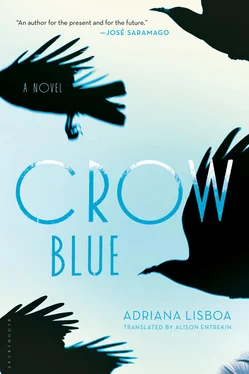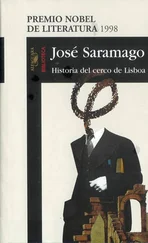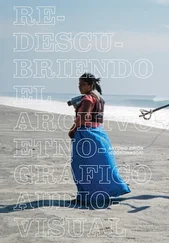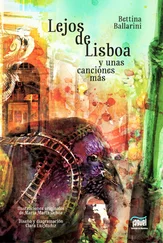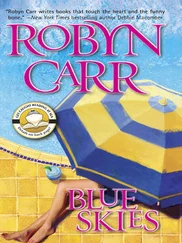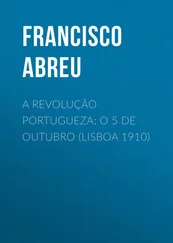My messianic wave came and went, for lack of disciples, or the wrong marketing strategy. It was destined to be brief. But before I realized that I personified a secular combination of Jesus, Buddha, Muhammad and Deepak Chopra, and then succumbed to the weight of responsibility and gave it all up, Fernando had already let me know what he thought about school and its dangers.
Careful about this thing of being popular, he said. Run from the word. Popular. Also run from the word loser. Don’t say these things. Don’t think them. Don’t divide the world into popular and unpopular people, winners and losers. All that crap.
Then he apologized for saying crap.
After three weeks of school Aditi Ramagiri and I were already saying how Jake Moore was a loser. A big time loser. A mega-loser. Such a complete and utter loser that there was no possible salvation for him. It wasn’t even worth growing up and becoming an adult. He’d be a loser as an adult too. I don’t remember exactly why, but I remember that when Jake Moore went past, Aditi and I would look at one another and whisper: loser.
I found out on my own, a little later, that the opposite of loserhood, the disease that all losers have, was my dentist. He had a photo of his whole family on his desk. They all wore matching clothes — in red and white, against a backdrop of snow-covered pine trees, in a Christmas pose. It was the first time I had seen a family all together for a thematic photograph. They were all blond, good-looking and smiling. Especially smiling, obviously.
That photo made me feel embarrassed: I had no family. I was American too, according to my papers, but in essence I was really a Latin product. It was on my face — and the rest of me — with all that insistent melanin in my skin. And I wore a jacket from an outlet to top it off. Almost all of my clothes were from outlets. The styles that would definitely be in the no-no columns of fashion magazines.
But there was hope. The photo seemed to suggest that if he was my dentist maybe one day I’d have teeth like his family’s, and teeth like his family’s could deliver me from all evil and make me of use to the world. Janis Joplin’s good aspects plus my mother’s good aspects, carefully selected. Life is Good.
Meanwhile, the mollusks in the sea at Copacabana drowned out the world in their crow-blue shells. And crows flew over the city of Lakewood, Colorado. Shell-blue crows.
Behind the headlands is a bay
Fernando was known as Horseshoe Chico when he arrived at the Peking Military Academy in the 1960s. In those days he had no way of imagining, not even in his wildest fits of creativity, Colorado, the red 1985 Saab, a girl called Vanja.
I never did find out where he got the codename from. How Fernando became Chico and got a Horseshoe to boot. It was one of the things he didn’t tell me in the time we lived together, and wasn’t among the papers that he let me examine, with a shrug — those insufficient letters and random notes that he kept in a wooden El Coto de Rioja wine crate in the back of his wardrobe, together with manuals for electrical appliances, old photos, an incomplete deck of cards and some expired coupons.
But he told me that shortly after disembarking in China and being greeted by an official retinue, in January 1966, he and the rest of the group of fifteen Brazilian Communist Party resistance fighters were invited to go to the opera.
The Peking Opera didn’t seem like an opera. Not that Fernando knew anything about operas, but he imagined fat ladies singing in high voices, double-chins wobbling with the effort and fleshy white cleavages spilling over necklines (if someone were to prick the singer’s breast with a pin there might be a magnificent operatic explosion, pieces of soprano falling onto the most expensive seats in the house). There in Peking, the spectacle was something else; a mixture of acrobatics, mime, dance, singing and theater. The actor-singers had painted masks over their faces and clothes covered in colors and sparkles and things dangling from their backs and hair and they sang in a completely different way to anything he had heard in his twenty-two years of life.
But Chico wasn’t in Peking to watch performances, even though the opera, as long as it dealt with communist themes (anything else was subversive), was part of the revolutionary machine.
His journey to Mao Tse-Tung’s China had begun ten months earlier, with a well-defined objective: to learn guerrilla warfare techniques together with fourteen other resistance fighters.
From Brasilia, where he lived, he had gone to São Paulo and then to Rio de Janeiro, where he spent some time trying to cover his own footsteps, and from there he had gone on to Paris, where he did the same, and then on to Peking.
Like others, he was convinced, as he would tell me later — me, who was so far removed from that whole story — that the military dictatorship in Brazil could be overthrown only if the people took up weapons. Elections? A possibility that didn’t exist. The path of peaceful transition wasn’t a path. The revisionists could say what they wanted: the fact was that parties would splinter and new parties, who believed in the people’s armed struggle, would come into being and a long war to free the Brazilian people would ensue. It would take place above all in the countryside, its initial strategy being guerrilla warfare.
Hence the course in Peking: in the name of the people’s war. In the name of the communist revolution in South America’s largest country, following the Chinese example. And while Horseshoe Chico was learning guerrilla warfare techniques in China, the Brazilian Armed Forces were learning techniques for fighting the Domestic Enemy, including more and better torture methods, in the United States and Europe. And nowadays everyone knows about it all. But things have a distinctive face when you are living through the post-things years. When you were born so many years later. When you need people to enlighten you, to explain, to tell you that the obviousness that ended up being archived really was obvious. The ugly truths went to the restroom and touched up their makeup. (At school, during Brazilian history lessons, everything was tedious, distant and slightly implausible. I watched the pigeons outside as the teacher was saying that during the 1960s. That during the 1970s. The 1970s for me were That 70s Show on the channel that showed foreign TV programs.)
Chico was good with weapons.
He was also good with women.
Both had appeared in his life very early. He had studied target-shooting in the interior of his home state of Goiás when he was still an adolescent. He was a natural. There was some kind of metaphysical union between him and the target. The bullet obeyed. The bullet knew resistance was futile.
Around the same time he fell in love with the first prostitute of his life, at the exact instant in which she took his hand and placed it on her cleavage. He asked her to marry him. She smiled at him in a half benevolent, half this-is-nothing-new-to-me way, and asked: how old are you? Seventeen. Liar, she said. I swear, he lied. And she didn’t say anything else. That wasn’t anything new to her either. In fact, most things were nothing new to her and everything was more of the same. Including kids who lied that they were seventeen when it was obvious that they were fifteen, if that.
He didn’t actually say prostitute . He just described her one day, after a few beers, as a girl who worked in one of those places where there are girls, and my imagination filled in the rest, fishing meanings out of his silence, hanging in the air like those speech balloons in cartoons. He said he liked her, and I pictured her cleavage and thought it may really have been like that, just as I have pictured some other things over the years. After all, if people didn’t provide me with details, I had the moral right to provide them myself.
Читать дальше
